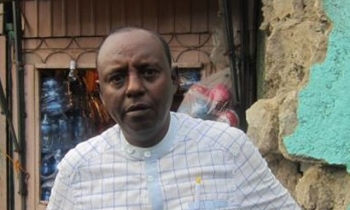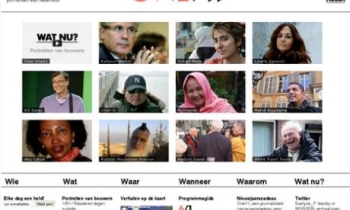IT TOOK 36 hours for the battle lines to be redrawn on Australia's media landscape after the Howard Government succeeded in its decade-long campaign to free up ownership.
Bills to water down foreign ownership limits and end the ban on media groups owning both television and print media were approved by Parliament at 12.13pm on Wednesday.
Ninety minutes later, Australia's richest man, James Packer, announced that he had moved his media assets, including the Nine Network, into a new, jointly owned company, freeing up $4.5 billion for expansion that is likely to focus on casinos to the north of Australia.
By Wednesday afternoon, investment bank Citigroup was in the market, compiling a 14.9 per cent, $343 million stake in West Australian Newspapers for Kerry Stokes' Seven Network, and Thursday began with the regional television and city radio station owner, Southern Cross Broadcasting, confirming that it had held preliminary talks with unidentified parties.
It ended with Rupert Murdoch's News Corp snapping up a $388 million, 7.5 per cent stake in John Fairfax, a $4.6 billion company that owns The Age and a stable of other high-end media interests. Sources said concern in News' Australian arm that the new PBL vehicle could go after Fairfax, despite earlier indications from PBL that it was not interested, might have tipped News' decision to build a blocking stake, and position itself in case there was a break-up of Fairfax. But, superficially, all was calm.
News' boss in Australia, John Hartigan, chatted for 10 minutes with Fairfax's chief executive, David Kirk, around breakfast time yesterday, repeating comments from Murdoch's headquarters in New York that News had taken a "friendly" investment. Fairfax chairman Ron Walker also spoke to Hartigan and News' stake was described as "friendly" by Fairfax in a short statement to the stock exchange. News itself issued no official statement.
By the end of the week, what Communications Minister Helen Coonan earlier this month called "a long and twisted road" had become a freeway and some of the usual suspects had raced down it to park in prime positions — the share registers of media companies that do not have dominant shareholders.
The Government's new ownership laws are designed to restructure an industry that has struggled with cross-media constraints for almost two decades, and while the Government says diversity of voices is paramount, Prime Minister John Howard has also said this week that in a small media market such as Australia's, "a certain concentration is needed".
But the speed with which the media groups have moved has taken the Government by surprise, and made the new system's traffic cop, Australian Competition and Consumer Commission chairman Graeme Samuel, an even more crucial player. Samuel has crafted new ways of looking at media markets to prepare for the merger onslaught, and in speeches and private conversation has expressed confidence that the ACCC will be able to prevent a major media ownership compression.
Separate tests requiring a minimum number of media outlets in city and regional markets and ownership of only two of the three main media forms — print, television and radio —will be applied by another body, the Australian Communications and Media Authority — but Samuel is the key.
As news leaked yesterday that the Ten Network's Canadian controlling shareholder, CanWest, had authorised Citigroup to assess options for its stake, Prime Minister John Howard's description of the moves as "anticipatory" was beginning to look dated.
A sea-change in ownership of Australia's media is now possible, and the political cost or profit to the Government will depend on the magnitude and detail.
The same-day timing of the Packer deal and the media deregulation bills was a coincidence that will add to the Packer mystique, but Packer is undoubtedly a beneficiary of the Government's package.
Easier foreign ownership limits have smoothed the way for his listed vehicle, Publishing and Broadcasting Ltd (PBL) to create PBL Media, a new company PBL will jointly own with a private equity buy-out firm CVC Asia Pacific. PBL Media has in turn paid PBL $5.5 billion for assets including Nine, the ACP magazine publishing operation, and the half-owned ninemsn internet portal. It has borrowed two thirds of the $5.5 billion it has paid PBL, while PBL has cleared a cool $4.5 billion in cash from the deal after covering its half-share of the new company's $1.9 billion equity base.
The cash inside PBL will help underwrite the construction of a global casino empire and an entertainment and media business that will focus on so-called "new media," much of its based around the internet.
And it is there partly because the Government has helped shore up the value of the Nine Network and the other free-to-air television groups, with repeated decisions to slow the development of alternatives to free TV, and through its refusal to licence a fourth free-to air network that would probably have been acquired by News Corp.
Polling by the Government late this week was still showing that the media ownership issue was not resonating with voters. That could change as the week's frenetic action is digested.
But even if it does, it will matter little to James Packer, who has geared his media assets and part-sold them to generate a cash bonanza without sacrificing political clout: PBL will have day to day control of the assets it has injected into PBL Media, and while PBL Media is heavily loaded with debt now, it can raise more funds if it wants to get into the media ownership scramble.
The $4.5 billion cash kitty he has created will underwrite moves that confirm that he is naturally a more aggressive investor than his father Kerry, who died on Boxing Day last year.
Packer senior was a legendary gambler, in casinos, and on the sharemarket. But his business strategies were more orthodox. It was James that drove PBL's decision to buy the Crown Casino at distressed prices in 1999 for example, creating a new business stream inside PBL that is now the group's major source of revenue and profit. By the time of Kerry Packer's death last December, PBL had also acquired the Burswood casino (Kerry Packer again was a slightly reluctant bidder), and it had seeded joint ventures to bid for licences around the world.
The most promising of them, Melco, a joint venture with Lawrence Ho, the son of colourful Hong Kong businessman Stanley Ho, was constructing a Crown-style casino in Macau, which was awakening from a lengthy colonial hangover to reinvent itself as the casino destination for nearby Hong Kong and mainland China.
A matter of weeks after his father's death, James saw the chance to dramatically increase PBL's Macau bet by buying a second, unlimited, casino sub-licence from the US casino magnate, Steve Wynn for $US 900 million.
PBL took up the offer, and is now actively developing two casinos in Macau, and beginning work on a third. Its share of the development costs is about $US3 billion. the debt is non-recourse to PBL, and there are plans to sell down the exposure by floating Melco. But there is no doubt that the Macau expansion has set PBL on a path that offers more rewards — and greater risk — than when Kerry Packer led the company.
Insiders say that James Packer characterised it at the time as a strategic judgement call. The returns on offer from Macau were startlingly high: the first western-style casino there, the Sands Macau, had repaid its total development cost in a year, and was still earning at a rate of 80 per cent of its invested cost a year.
A slew of new casinos were coming under Macau's very liberal licensing regime, including the PBL venture's first, the Crown Macau, which is due to open next April. But Chinese tourists were pouring in as Macau's strip redeveloped, and PBL still expected to gets its money back on Crown Macau casino in little more than two years.
Everybody expected profitability to come down further as casinos continued to open, but returns of 20 per cent plus seemed sustainable. And that beat PBL's media assets hands down: on one internal analysis, they were earning barely enough to cover their share of PBL's dividends.
James Packer's decision to chase the jackpot in Macau is part of an aggressive global casino rollout by PBL using local joint venture partners such as the Aspinall group in Britain that in time could extend to Japan, Thailand, Britain, Russia, and elsewhere (Only this month, the group resurfaced as part of a consortium bidding for a second casino licence in Singapore, and Steve Wynn is said to be investigating prospects for PBL in America).
But the strategic decision that Packer made necessitated a reciprocal re-think about the group's iconic media assets, which were tying up billions of dollars of value.
Members of the PBL inner circle including Packer, PBL's chief executive, John Alexander, the group's executive deputy chairman, Chris Anderson, and Chris Mackay, who until recently led investment bank UBS in Australia, began thinking about the problem, and they knew the climate for major restructure was good.
The Howard Government's control of the Senate meant media ownership reforms were likely to finally pass, and private equity funds were flush with money, and sniffing around.
Two investment banks, Mackay's old firm, UBS, and Macquarie Bank, had specific ideas about unbundling the assets: Macquarie's plan centred on a partial sharemarket spin-off, while UBS' investment banking co-head, Matthew Grounds, lobbied for a 50:50 deal with private equity.
In August, PBL told UBS and Macquarie to implement the UBS blueprint — but James Packer introduced some important variations. The process was to be completed very quickly, in time for PBL's annual meeting on October 26. PBL also would not negotiate on price, and would sell a fixed basket of assets on a first-come first-served basis. Europe's CVC got across the line last Tuesday, beating out two US private equity firms, Kohlberg Kravis Roberts and Newbridge, and by Wednesday the agreements were legalled, and signed.
On one view, a short sharp period of positioning for the promulgation of a new media regime either late this year or early next year ended yesterday, when News Corp turned up on Fairfax's register. But history tells us that the media bulls run hard when the gate is opened.
In late 1986 when the-then Communications Minister, Michael Duffy, announced proposed changes to the media laws including the cross media laws that have just been junked, there were 19 metropolitan daily newspapers and 13 Sunday papers in Australia.
Duffy's media release provoked a frenzy of takeovers and mergers ensued as media groups capitalised on the new rules to become either princes of print or queens of the screen, as Paul Keating memorably described it.
Dynasties changed. The Herald and Weekly Times company was taken over by Murdoch, and the Fairfax family's control of its business was lost after a disastrous, debt laden takeover by the youngest son of the family, 26-year-old Warwick Fairfax.
Commercial television channels around the country were bought for wildly inflated prices and sold again within years as epitomised by Kerry Packer's deal of a lifetime, the sale of the Nine network to a rampant Alan Bond for more than $1 billion, and his subsequent repurchase of it after Bond's fall from grace for about $200 million.
Within five years of the media laws' passage, 19 metropolitan daily newspapers had become 12, Sunday papers had shrunk to 10, and News Limited controlled two-thirds of the newspaper market.
What happens next? It's anybody's guess. "You've seen three deals that nobody expected this week," says one senior player. "Who's to say there won't be another three next week? Nobody knows."









